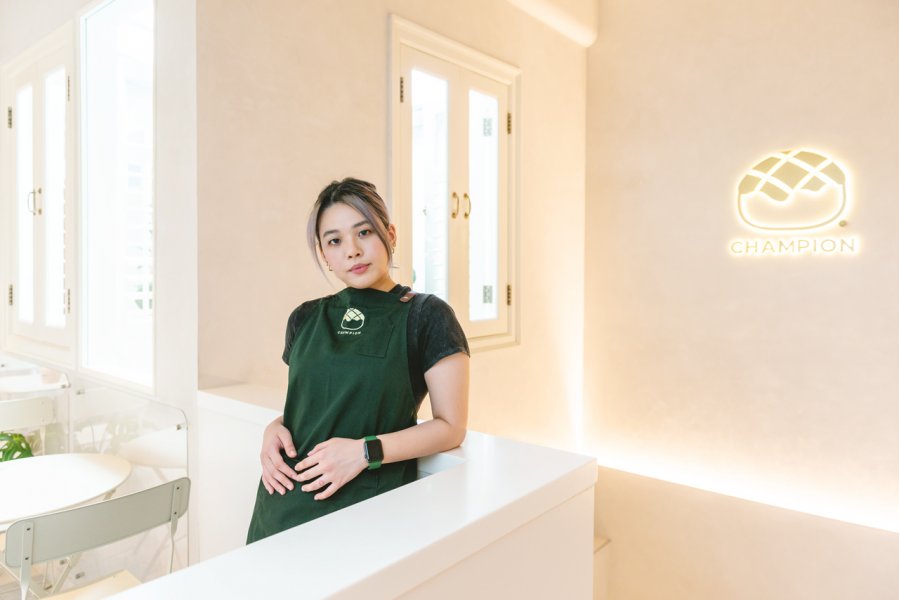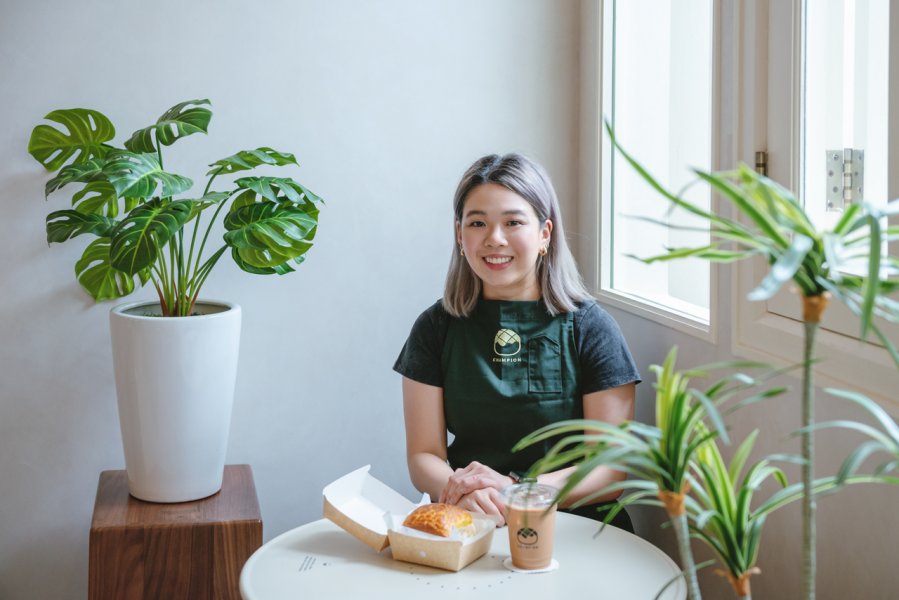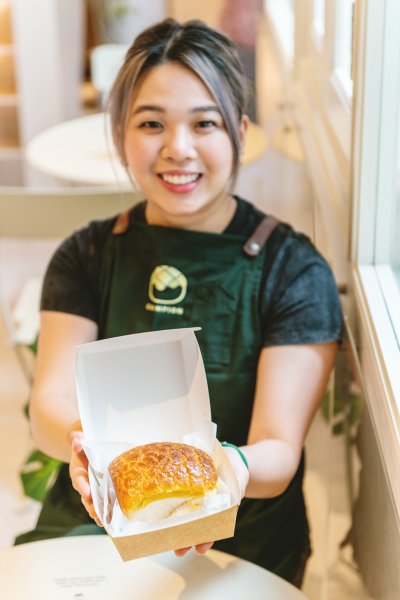It’s no secret that entrepreneurship has been gaining more and more attention in recent years. The benefits of being able to push boundaries and bring about a change in society has made it a popular goal for many of us.
Witnessing our fair share of inspirational stories through the media, we can only wonder if we’re also up for it. This month, we speak to Hoh Loyi, the young founder of Champion Bolo Bun, to learn more about the journey of an entrepreneur.

As an entrepreneur, could you share with us what it took for the business to actually take off?
We started out by doing events. When I came back from training in Hong Kong, we immediately started running pop-ups at events like Artbox with a very clear purpose of looking for partners and seeking funding. We’d put up banners calling for investors next to our stalls.
We were very fortunate to always have some of the longest queues, which gained us a lot of attention from potential partners.
When you finally decided to do this, what were the scariest limitations?
I guess the biggest hurdles to cross were, first of all, emotional ones. When I got the idea, most of the people I care about disagreed with it. There were doubts about things like the location and concept, which really affected me. It was not only demoralising, but also scary because anybody in that situation would feel a lack of support.
Secondly, for businesses like Champion Bolo Bun, we do not have an endless supply of capital. The support we got came as a one-time investment, so there was a real pressure to spend it right and ensure we don’t run out. There was definitely a degree of risk for both my team and the investor.

I believe your journey must have given you new thoughts and insights?
Everything we have here at Champion now has a story behind it – we even had issues with our decorative neon signs. I believe that behind most businesses are a trove of similar stories and difficulties. So I think just because people enter a place and feel that something isn’t up to their expectations, they don’t necessarily have to go online and speak ill of them.
If people really hope for businesses to improve, they could perhaps send a private message or speak directly to them, instead of criticising them online. Especially for F&B businesses that just started, it really gives them time to improve on their workflow and products.
What was your training like in Hong Kong?
It was very hard for me to convince my sifu to take me in, especially with my obviously foreign Cantonese accent. The kitchen was also predominantly male, and to top it off, they weren’t young males – they were all at least in their 40s. My sifu also never taught anyone else his entire recipe before, apart from one right-hand man.
But because I was like the little girl there, everyone was actually taking really good care of me. Of course, at the start, they really doubted me. They didn’t expect me to be able to physically go through with the work, especially because they felt I wouldn’t have the strength to deal with lifting heavier weights. Eventually, when they saw that I was really pouring myself into it, they would always offer to help me with the heavier stuff.

Their actions and concern made me feel like a part of that family, and that made the two years I was in Hong Kong really bearable. I was also able to celebrate important dates with my sifu’s family, which made it all the more special. So my experience training in Hong Kong was actually a really positive one.
Having been there, could you share with us the differences between the culture of pastries and desserts over here and there?
Because of the close connection they still share with their Chinese hometowns, people in Hong Kong are a lot more influenced by Chinese traditions and are still very much in touch with traditional food and tastes.
In Singapore, we’ve become more detached and have gotten used to a mix of so many other cultures, especially with Western tastes. It’s more commonplace to find traditional breads in Hong Kong, while Western pastries and desserts are more widespread here.
What do you think really sets bolo buns apart from other buns?
I feel that it’s a very niche treat, in the sense that there are a lot of people who enjoy it but there isn’t quite enough supply of it. If you realise, we can easily find recipes for pastries like croissants, for example, online but if we tried the same for bolo buns, we don’t come across results that look nearly as appealing, if any.
There isn’t enough exposure in that sense, even though people normally love cantonese food and almost all visitors to Hong Kong will want to dine at a cha chaan teng or look for bolo bao itself.

When it comes to bolo buns, what differences are there between traditional methods and contemporary ones?
For us here at Champion Bolo Bun, it’s about the ovens we use. We’re still using the old-school traditional ovens without any contemporary technology. Our ovens do not have digital timers and only have three options from low to high heat.
Because of that, I’m able to tweak my recipe and make my buns fluffier. Unlike modern ovens, the old ovens are also able to produce better crusts – the different distribution of heat on the top of the oven gives the crust a good char and makes it crispy.
How would you tell which bolo buns are good?
To me, a good bolo bao, and also my favourite kind of bolo bao, is one that has a thick and crispy crust. I like to peel the crust off, and be able to enjoy it that way. So that’s my biggest requirement of a bolo bun: the crust has to be like a cookie that I can peel and eat. Next, the bun itself has to be soft and fluffy, but with a nice chew to it instead of being too airy.
You’ll have to try her bolo buns yourself to find out just how amazing they are!
For more information on Champion Bolo Bun, visit their official website here.





